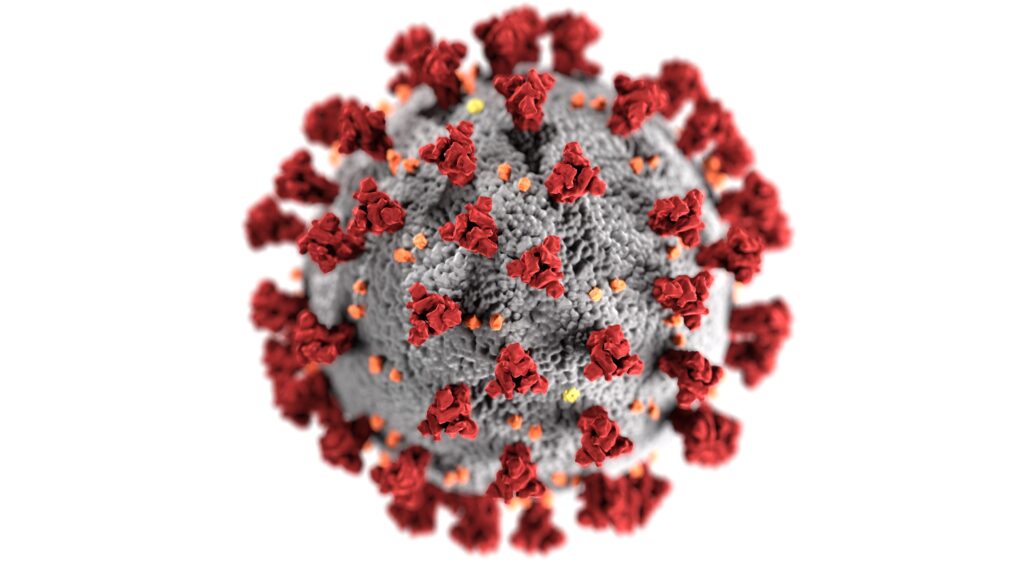ONE IN eight patients hospitalised with Covid-19 between May 2020 and March this year was later diagnosed with myocarditis – heart inflammation – according to major new research into the clinical long-term effects of Covid-19.
The CISCO-19 (Cardiac Imaging in SARS Coronavirus disease-19) study, which was funded in May 2020 as part of a Scottish Government Chief Scientist Office Rapid Research Response aimed at increasing the understanding of the coronavirus pandemic, followed patients in real time after hospitalisation with Covid-19 and compared their health to those in a control group of individuals of similar age, sex, and medical background.

Assessments included blood tests, and CT and MRI scans of multiple organs, including the heart, kidneys, and lungs, as well as measuring patients’ own opinions on their own ongoing health via questionnaires.
Hospitalisation with Covid-19 was found to cause a number of long-term health problems.
Inflammation across the body and damage to other organs such as the kidneys was also common.
These problems clustered in individuals pointing to the overall severity of Covid-19 as being the main driver of illness.
Professor Colin Berry, principal investigator of the CISCO-19 study and a professor of Cardiology and Imaging at the University of Glasgow said: “Covid-19 is a multi-system disease, and our study shows that injury on the heart, lungs and kidneys can be seen after initial hospitalisation in scans and blood tests.
“These results bridge a vital knowledge gap between our current understanding of post-Covid-19 syndromes, such as long Covid, and objective evidence of ongoing disease.
“One of the most important findings of the CISCO study is that it is the severity of a patient’s Covid-19 infection – not their underlying health conditions – that is most closely correlated with the severity of any ongoing health outcomes post discharge.
“We found that previously healthy patients, without any underlying health conditions, were suffering with severe health outcomes, including myocarditis, post hospitalisation.
“The reasons for this are unclear, but it may be that a healthy person who is hospitalised with Covid-19 is likely to have a worse Covid infection than someone with underlying health conditions who is hospitalised.
“More work needs to be done here to understand the risks, and on how we can better support patients who have ongoing health outcomes after being hospitalised with Covid-19.”
Long Covid has been found to predominately affect females.
CISCO found that female sex was associated with myocarditis, which in turn was linked with lower mental and physical wellbeing.
Researchers believe these findings provide some answers that could explain the physical limitations experienced by some female patients post Covid-19 hospitalisation.
Considering clinical translation into healthcare, the results highlight the need for focused use of medical tests, new therapy development and rehabilitation.
The results also highlight the importance of avoiding severe Covid-19 such as by vaccination.
Professor Julie Brittenden, Director of Research, and Innovation at NHSGGC said: “NHSGGC is pleased to have played an important role in this study, which has further enhanced our understanding of the long-term effects of Covid-19 in patients who required to be hospitalised.
“I would like to thank all of our patients who have taken part in this study, as well as the wider research teams who continue to work to improve knowledge, develop treatment options and improve outcomes of patients with Covid-19.”
Professor David Crossman, Chief Scientist (Health) for Scotland at the time the study was funded said: “This study provides important insight into the longer-term effects of Covid-19 infection, and will help inform approaches to treatment going forward.
“The Chief Scientist Office is pleased to have funded this research as part of the £5 million Rapid Research in Covid-19 programme.”
The study is ongoing, supported by NHSGGC, and will continue to follow up with patients at 18 months and five years post hospitalisation.
The study, ‘Multisystem, cardio-renal investigation of post-covid illness’ is published in Nature Medicine.
The work was funded by the Scottish Government’s Chief Scientist Office, and supported by the British Heart Foundation (BHF) as part of the University of Glasgow BHF Centre of Excellence.
